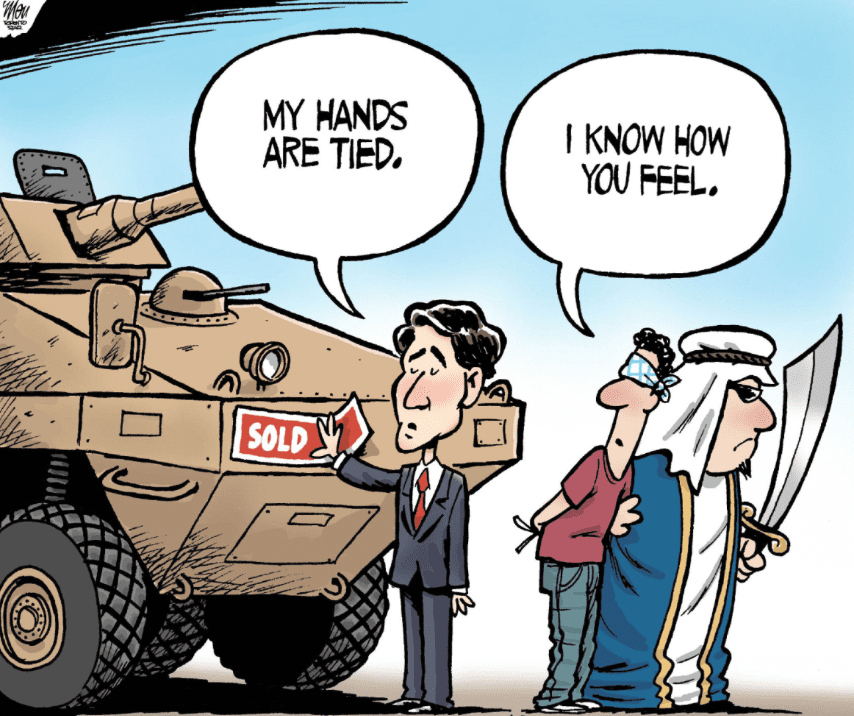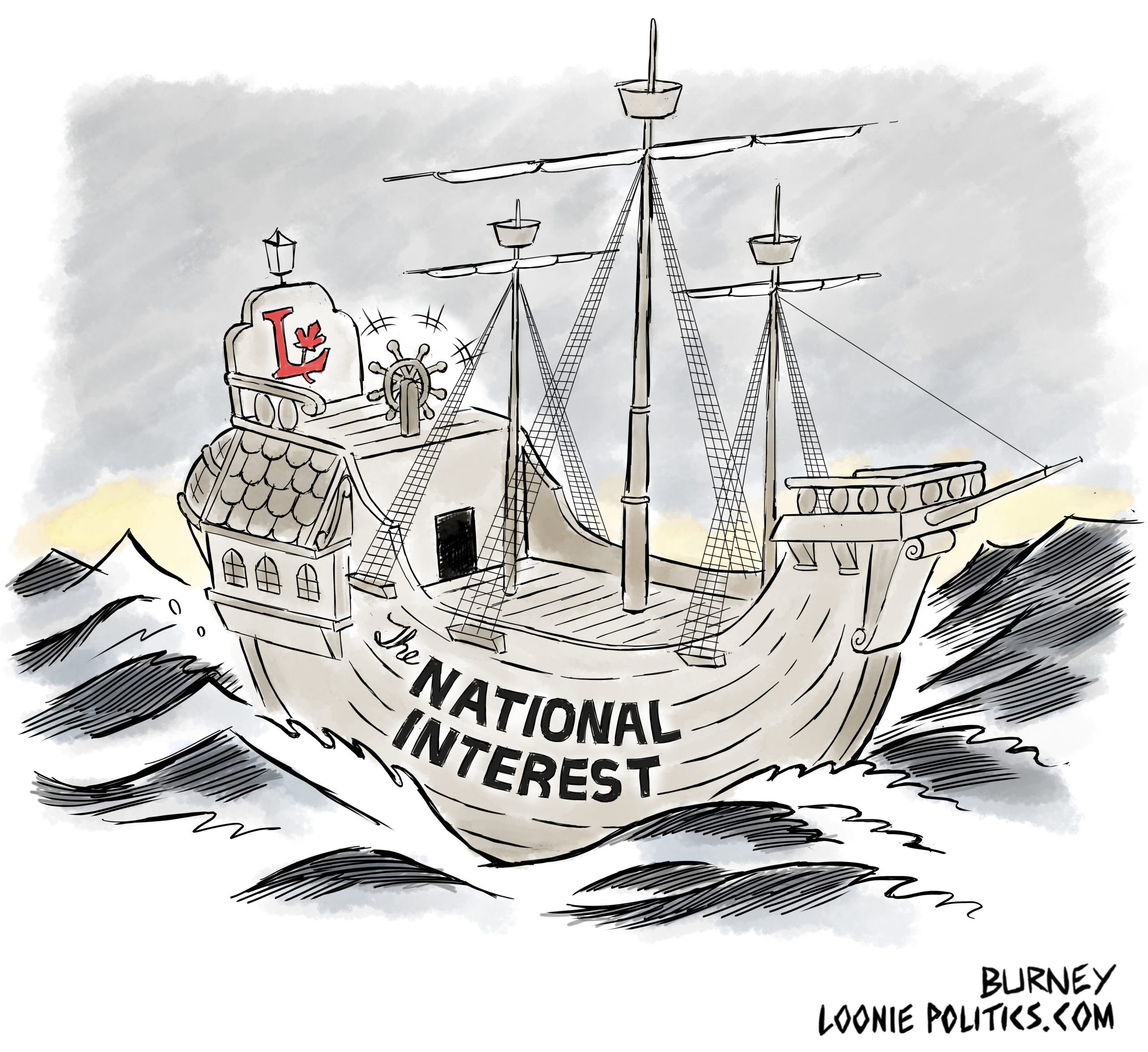Last Thursday afternoon, Global Affairs Minister Francois-Phillippe Champagne held a press conference to address the release of one the government's most recent policy statements.
This statement, issued by both Champagne and Finance Minister Bill Morneau, confirmed that the Canadian government had lifted its suspension on arms exports to Saudi Arabia. Not only this, but the government noted that it had renegotiated its 14 billion-dollar contract on behalf of Ontario-based General Dynamics Land Systems, to continue the export of its light armoured vehicles (LAVs) to the Saudis.
Rather tellingly, the press conference and the subsequent policy statement was made public only a few hours before the start of the long weekend.
Evidently, the Trudeau Liberals were able to grasp, in their all-knowing wisdom, that this new change in government policy might not be too warmly received.
After all, most Canadians probably wouldn't be thrilled to know that their seemingly benevolent government is exporting arms to a regime which has carried out an onslaught of violence against neighboring Yemen since 2015.
Nor would they be too elated to know that their government is helping fuel this conflict through the selling of its arms. Or that their "feminist" Prime Minister is only providing greater credibility to the murderous Saudi monarchy, notorious for committing human rights abuses against its own citizens, by maintaining such robust trade dealings.
Heck, just the other day the Saudi regime carried out its 800th execution since 2015 under the current reign of King Salman bin Abdulaziz.
Nevertheless, the Trudeau Liberals persisted.
And they did so in a particularly convoluted manner.
For instance, at the beginning of their policy statement, Champagne and Morneau appeared to deflect responsibility for the arms approval. On two separate occasions, the ministers cited how the arms deal in question was signed not by they themselves, but their Conservative predecessors.
That's true enough.
But what the ministers conveniently forgot to mention was that it was their government who made the "crucial approval of the first export permits for the LAVs," not the Conservatives.
Once Champagne and Morneau had finished playing the blame game, they then went on to justify their decision, referencing both the potential for financial losses and job layoffs if they had not moved ahead with the deal:
"We can confirm that the cancellation of this $14-billion contract — or even the mere disclosure of any of its terms — could have resulted in billions of dollars in damages to the Government of Canada… This would have put the jobs of thousands of Canadians at risk, not only in Southwestern Ontario but also across the entire defence industry supply chain, which includes hundreds of small and medium enterprises."
Finally, once all the deflections and justifications had been made, Champagne and Morneau chose to pivot even more, boasting of the "significant improvements" they had made to the deal.
According to them, the inclusion of an advisory panel of experts to oversee the approval process of arms exports, as well as the new measures to protect Canadians from financial risk if there is "an infringement of the permit's end use assurances" made the deal worthwhile in pushing ahead with.
Perhaps these measures do indeed represent an improvement for Canada's humanitarian credentials when exporting arms. Well, at least as far as selling arms can ever be reconciled with humanitarianism.
Yet in this current situation, these changes do nothing to address the fundamental and immoral issue of selling arms to one of the world's most repressive regimes. A regime which, let us not forget, is responsible for the death of thousands of innocent Yemenis civilians and the displacement of millions more.
Champagne and Morneau can clamor on all they like about how Canada's armored vehicles are not at "substantive risk" of being used to violate human rights. But in the face of overwhelming evidence cited by arms control advocates like Cesar Jaramillo, the government's decision appears more like an "exercise in willful blindness."
Instead, Canada should take heed of countries like Belgium, Germany, Greece and Norway, which, according to Amnesty International, have all either partially or completely suspended their arms exports to Saudi Arabia and its coalition allies.
To be clear, the potential loss of jobs in southwestern Ontario, as well as the financial hit taken by the government in the event of a cancelled deal would indeed be lamentable.
But even more lamentable, and far more unforgivable, is for Canada to continue to enable the war crimes perpetrated by the Saudi regime. By continuing with this arms deal, that is exactly what the Canadian government is complicit in doing. To say that this is utterly disgraceful would be an understatement.
Canada can, and must, do better.
Photo Credit: Toronto Star













